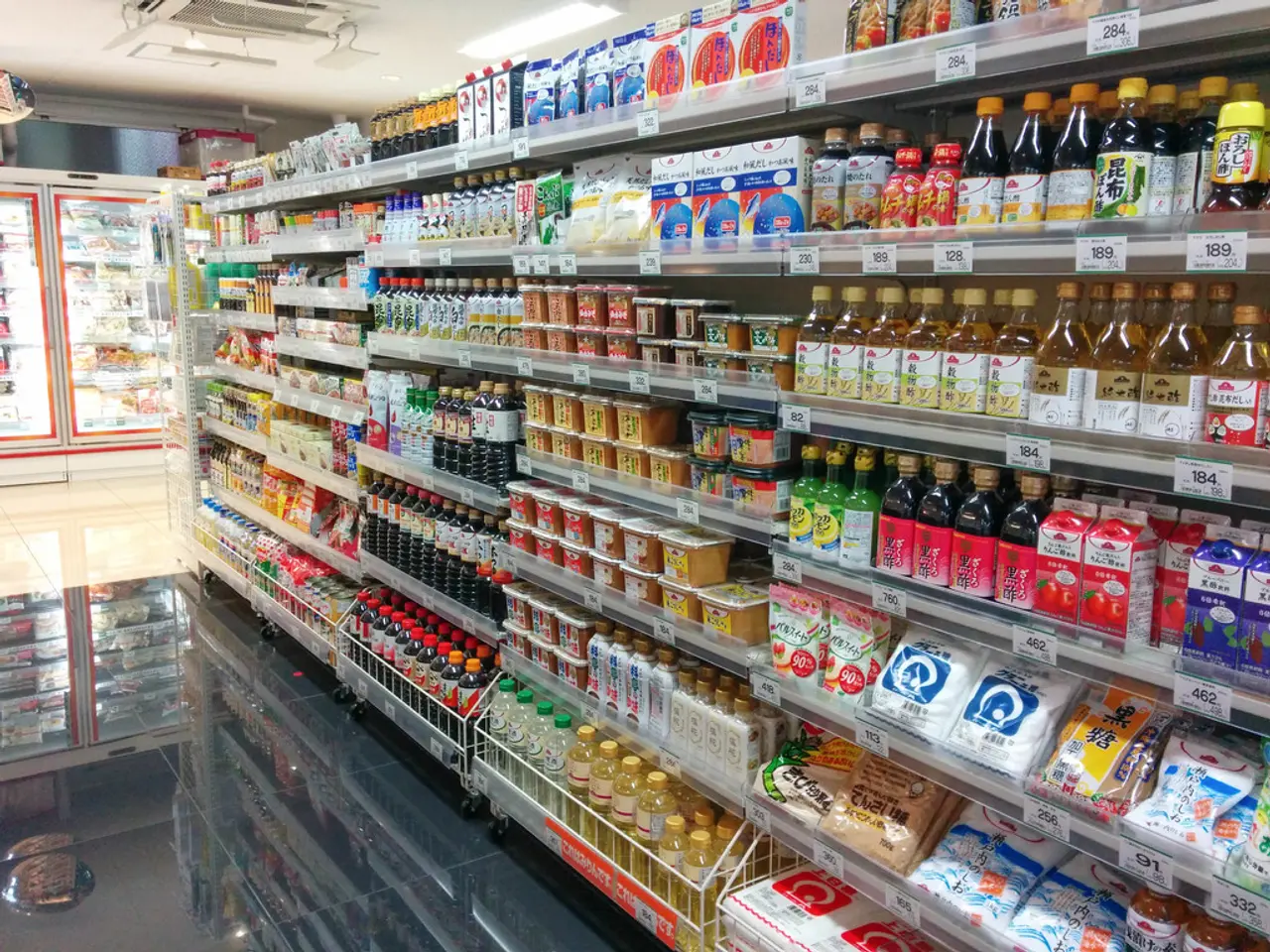Trump's Reductions in SNAP Funding and City Council's Grocery Delivery Legislation Pose Issues for New York City Residents
In the heart of New York City, the City Council's Int 1135 bill is causing a stir. The proposed legislation aims to expand minimum pay-rate protections and labor rights for grocery delivery workers, a move that could potentially improve the economic stability of low-income delivery workers. However, concerns about its impact on food access and affordability for vulnerable communities are rising.
The primary worry is that Int 1135 may increase grocery delivery costs by 46% or more, making it harder for many New Yorkers to afford or access groceries, especially seniors, working families, and residents in food deserts who heavily rely on delivery services. Critics argue that this price increase could disproportionately hurt low-income families and older adults, exacerbating food insecurity.
Supporters of the bill, including City Council members and labor advocates, counter that fair pay for delivery workers and food access are not mutually exclusive. They suggest alternatives to address affordability, such as expanding the "Health Bucks" program for fresh produce or programs like "Groceries Go" that subsidize delivery for people with health conditions.
The mayor, Eric Adams, has vetoed Int 1135, citing concerns over increased grocery delivery costs and the potential negative impact on food access. However, the City Council plans to override the veto, emphasizing the importance of improving workers’ pay and conditions while suggesting other measures could help maintain affordability.
The situation of food insecurity in New York City is already dire. In the city, food insecurity affects 1 in 4 children, 1 in 8 households, and nearly 1.4 million people. Two-thirds of "chronically ill food-insecure" New Yorkers identify transportation as a barrier to obtaining food. The bill's potential to disconnect local businesses and food providers from the communities they're meant to nourish only adds to the worry.
Moreover, the bill's effects would be harshest on Black and Brown communities, which disproportionately bear the brunt of negative economic pressures in New York City. President Trump and Republicans in Washington are slashing billions in funding for food programs like SNAP, a move that could impact almost 3 million neighbors and hundreds of thousands of Black and Brown New Yorkers. Hunger is rising at an alarming rate in the city, and this funding cut could make the situation worse.
In conclusion, Int 1135's potential impacts include positive changes for grocery delivery workers, such as better wages, faster pay, and labor protections. However, it also carries the risk of higher delivery fees and grocery prices for vulnerable consumers, potentially reducing food access and affordability. The bill represents a trade-off between improving labor conditions for delivery workers and maintaining affordable grocery access for those relying on these services, particularly in underserved communities. Mayor Eric Adams must carefully consider these implications before making a decision on the bill's fate.
- The debate surrounding Int 1135 in New York City's City Council extends to various domains, including health-and-wellness, as concerns about its impact on food access and affordability for vulnerable communities are rising.
- Proponents of the bill argue thatpolicy-and-legislation like Int 1135, aimed at improving workers' pay and conditions, can coincide with other measures, such as nutrition programs and lifestyle initiatives, to maintain food affordability.
- In the realm of general-news, the mayor's veto of Int 1135 and the City Council's plan to override it illustrates the ongoing politics involved in shaping food-and-drink policies that aim to balance workers' rights and community needs.
- Amidst these developments, it's crucial to consider the Science behind the effects of food insecurity, particularly on child development, overall health-and-wellness, and the disproportionate impact it has on Black and Brown communities, as highlighted in the city's statistics.




